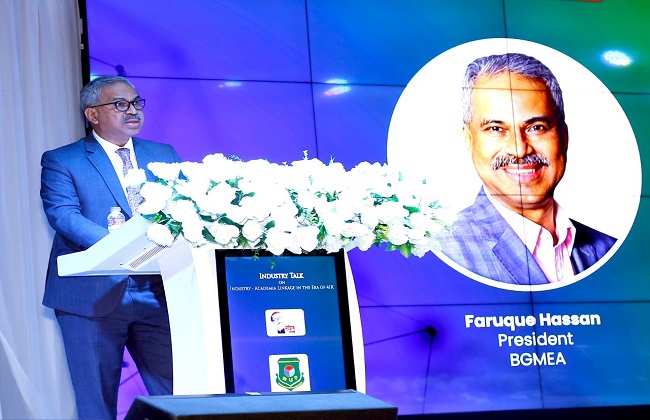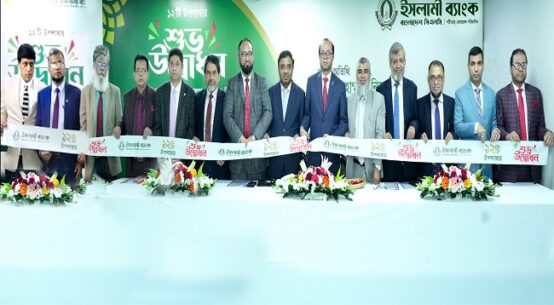
BGMEA President Faruque Hassan has underscored the need for aligning university courses in Bangladesh with the present and future needs of the industries and imparting market-oriented skills training at the right quantity and competence to face challenges especially posed by the fourth industrial revolution (4IR).
“Previously, there is a fear of 4IR among us that technologies will kill jobs. But the perception is changing day by day. Technology may rather bring greater opportunities for us if we can adapt ourselves. Here the industry – academia collaboration will play a crucial role. We need capable human resources to take advantage of technologies,” he said.
He made the remarks while delivering his speech at a session titled “Industry-Academia Linkage in the Era of 4IR” organized by Bangladesh University of Professionals at Bijoy Auditorium, Mirpur Cantonment in Dhaka on Wednesday.
In his address Faruque Hassan pointed to the existing gap between the skills produced by educational institutes and the demand by the industries.
“The industry – academia linkage is important because our growth depends on our ability to move to diversified products which requires complex skills. The job market has to be ready with required skills to meet contemporary production techniques, product sophistication and fashion trend. Excessive concentration in a few skills makes diversification difficult,” he opined.
Stressing on the need for complementing academic programs with real life training, he said, “Often it is observed that a person who received classroom education cannot perform well in real-life atmosphere. So the linkage between industry and academia has to be drawn by changing the conventional way of education, we need to integrate more practical education.”
BGMEA is setting up a “Centre of innovation, efficiency and OSH” with the aim to improve skills and connect a bridge between the industry and updated technologies that being used across the globe, he added.
Faruque Hassan said, “We are living in the era of demographic dividend and we have a huge vibrant population. If we can make them skilled according to the industry’s need, we will be able to make the industry more competitive. That will bring sustainable growth to our economy.”
“We are in a transition to remodel our industry from quantity to quality, and from volume to value. We have set our priorities to enhance capabilities, particularly in the area of diversification of our products and markets, investments in high end textile sectors, especially non-cotton areas, innovation, upgrading technologies, re-skilling and up-skilling our workforce,” he added.


